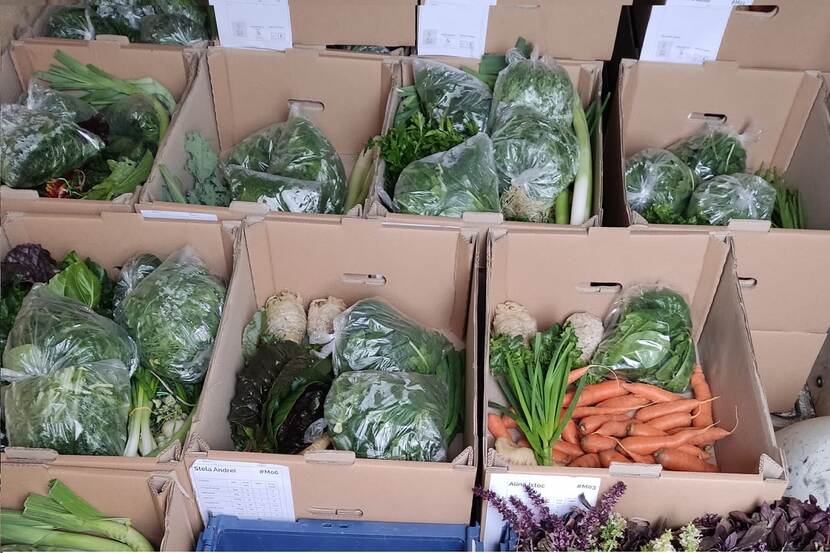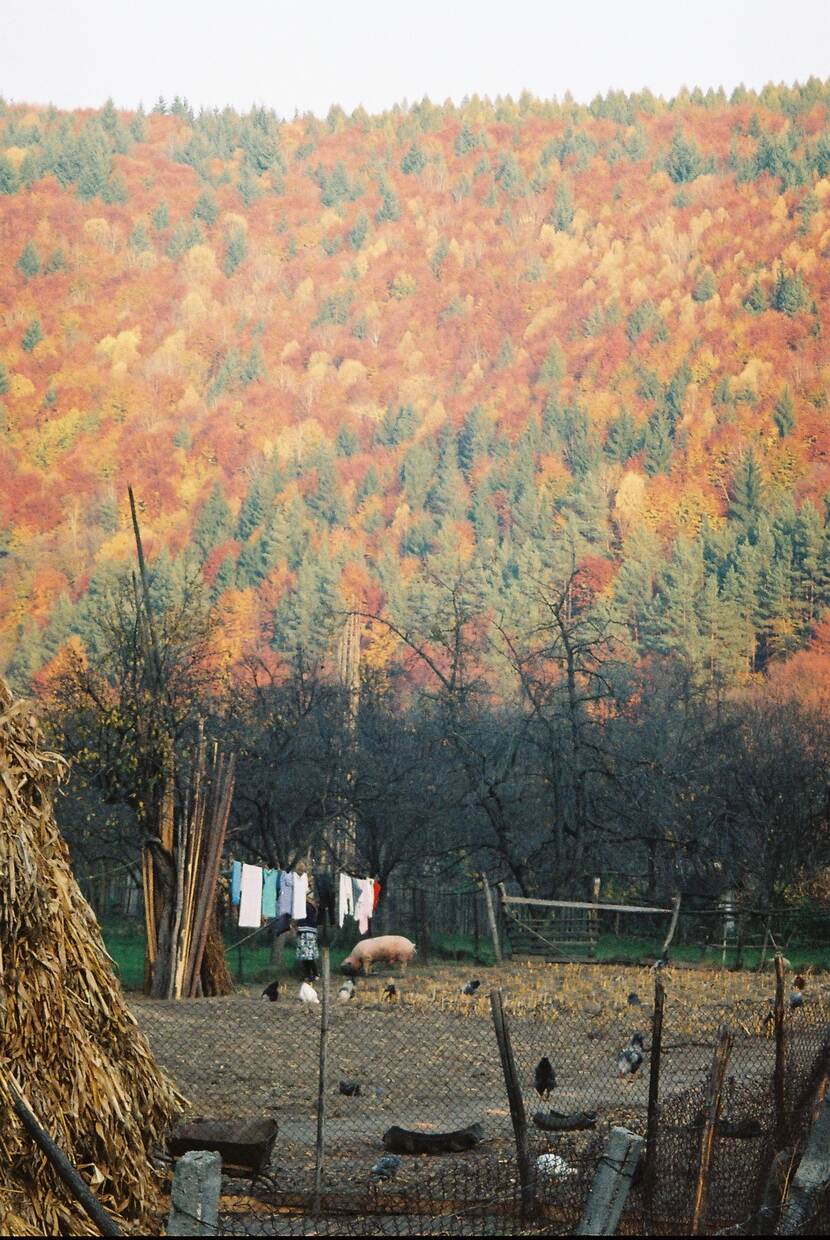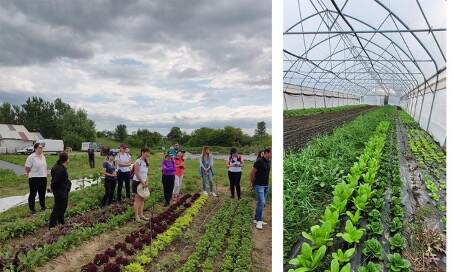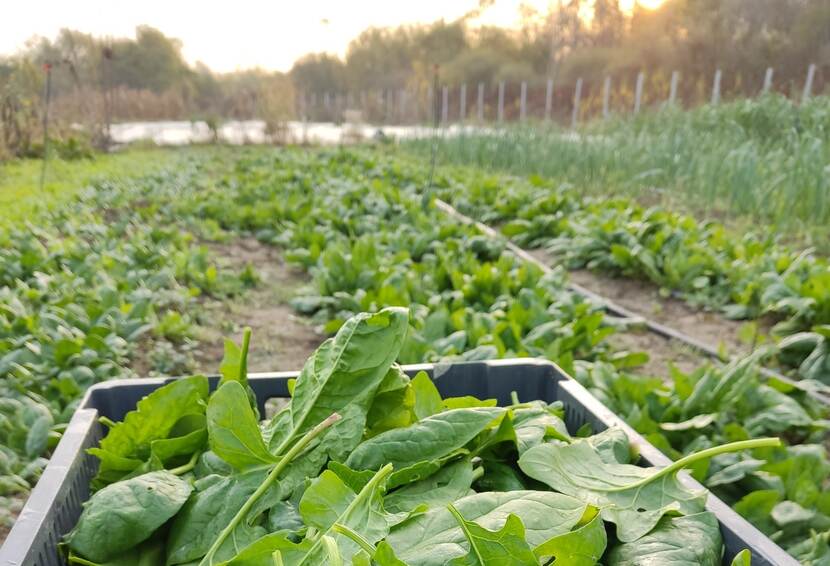The rise of regenerative farming in Romania
Romania, a country known for its rich biodiversity and vast agricultural lands, is experiencing a unique balance between agriculture and nature. While its history of state-owned agriculture during the communist era had detrimental effects on the environment, the transition to a free-market economy has presented challenges for the agricultural sector. Fortunately, there are a lot of opportunities as well. And multilateral cooperation with countries like the Netherlands can provide even more.

During communism, Romanian agriculture was almost entirely state-owned and big scale, and forest or swampy areas were turned into agricultural land, increasing flood risk and decreasing biodiversity. Following its return to a free market economy in 1989, the country had to deal with a large fragmentation of farmland ownership resulting from the restitution of land to its pre-communism owners, as well as the lack of capitalization of its farmers after 1989.
However, the lack of sufficient financial resources has been conducive to a lower use of agri-chemicals, placing Romania at the bottom of the EU list, with the lowest quantities. Similarly, the large number of small farms practicing extensive and traditional agriculture has led to a lower impact on nature and biodiversity.
‘The Soil and Soul project is laying the foundation for a network of regenerative farms that share an ethical system of food production and distribution with a positive impact on the environment’

Disadvantages of the past, advantages for the future
Economically speaking, this situation has had its price: the smaller farms have not been able to make a substantial contribution to the efficiency and profitability of Romania’s overall agricultural production, while the larger farms could not fully compensate for the gap in output and efficiency, leading to a slower development of the sector compared to Western Europe. Nevertheless, Romania is in a rather fortunate position benefitting from a large agricultural base together with vast areas of rich biodiversity.
Although the balance between agriculture and nature is not always there, the two do not conflict as much compared to other European regions where competition over land is more intense and environmental pressure is higher. Unlike their Western colleagues, Romanian farmers still need to make agriculture more efficient and productive. This process needs to consider some new realities.
New roles of farmers
The main reality is that Romanian farmers no longer are mere owners or users of agricultural land. They are seen as food providers: food which should be safe, nutritious, affordable and sustainably produced. But their role has become bigger and society also considers them as custodians of natural resources and traditional values and as contributors to the fight against climate change.
Are Romanian farmers up for this complex role? Some yes, some try to ignore the signals, other remain conservative. They can still afford that, in a society in which the price is a decisive factor in the purchase of food. However, progressive farmers look towards the future, they see where harmony with nature has been lost and must be regained.
Nature-friendly practices slowly gaining ground
More environmental-friendly farming has gained attention when Romania joined the European Union in 2007. The EU agri-environment schemes (providing incentives for more nature-friendly agricultural practices and organic agriculture) have been an eye-opener for Romanian farmers. Many larger farmers have invested in precision agriculture lately. Is it for the sake of the environment? Or is it just to cut down costs? What matters in the end is that the environment and climate benefit from these modern technologies and digitalization.
The concept of permaculture or regenerative agriculture is slowly but steadily getting more attention, especially from more environment-conscious players. They define this concept as the conscious design and maintenance of agriculturally productive ecosystems which have the diversity, stability, and resilience of natural ecosystems. To facilitate permaculture, the Institute for Research on Permaculture in Romania (ICPR) has been founded, which is a non-profit organization representing the Romanian permaculture community.
Soil and Soul project of regenerative agriculture
Soil and Soul is an innovative project in the field of permaculture and regenerative agriculture, developed by ICPR and supported by Kaufland Romania. Regenerative agriculture aims to protect and regenerate the natural systems (soil, water, biodiversity) that help produce food. It places particular emphasis on improving soil condition and regenerating degraded soil through active practices and techniques. The Soil and Soul project is laying the foundation for a network of regenerative farms that share an ethical system of food production and distribution with a positive impact on the environment and economy, leading to a responsible society.
The project has resulted in the first regenerative farm in Romania, where research and development are carried out in a regenerative production model and where young farmers receive training through internship programmes. The farm is located some 80 km north of Bucharest, in Vlădeni, Dâmbovița county. It covers more than 6 hectares and comprises 10,000 square meters of vegetables grown in the field in a biointensive system; 10,000 square meters of arable crops; 5,000 square meters of pasture in a holistic management system and 2,500 square meters of protected space (plastic tunnels). In addition, it has 300 square meters of greenhouse to produce organic seedlings; 7,000 square meters of mixed orchard intermingled between vegetable plots (with a multiple role: fruit production, windbreak and a habitat for increased biodiversity); 4,000 square meters of protective forestry hedge (windbreak) around the property and 350 square meters of a multi-purpose agricultural shed.
Also, there is a 1,000 square meter pond to collect water for irrigation and in times of drought, and to create microclimates and habitats for increased biodiversity. And finally, there is a 200 square meter basin for the capture, filtration and biological treatment of rainwater.
The aim of the farm is the development and promotion of a regenerative production model, in parallel with the continuous training of a team of managers who can gradually acquire the independence and capacity to manage and develop a regenerative farm, as part of a national network. After completion of the internship programme, some remain employed on the farm and others start their own regenerative farm supported with mentoring and consultancy by the project. An internship can last two months, forty hours per week.

Internship on the farm
One example of internship is the Organic Regenerative Vegetable Farming program. It helps to clarify participants' vision of production issues, farm management and lifestyle and the future of regenerative agriculture before investing time and resources in their own business.
The farm plans to expand the accommodation capacity of the educational centre to accommodate more volunteers, interns, visitors or employees. Volunteers stay an average of one month and have a schedule of five hours per day, five days per a week. Outside this schedule, they work on their own projects and learn about living on a farm.
This year the farm aims to develop its own infrastructure, such as climate automation for the protected vegetable production and accommodation space. Also, it will continue the development of its production model in parallel with increased production and sales. Products from the farm are sold and promoted online, but also in large supermarkets. Customers can subscribe to receive at home a basket with various products from the farm on a (bi)monthly basis.
Green education and knowledge transfer
Price is still considered the most important factor in food choices. Other factors, such as nature and animal welfare, are becoming more important but at a very slow speed. Therefore, consumer education is crucial, as it can stimulate a demand for sustainable products as well as healthier eating patterns. Equally important is the education of farmers and other chain players about nature-friendly and -nature-inclusive farming practices, their changing role in society and about the opportunities and threats in this changed environment.
In addition, the authorities may also consider promoting sustainable farming practices by setting a good example. By restricting public food catering to products from sustainable farms, for example. Or including these products in subsidized school food programmes, such as the school fruit scheme or the free-warm-meal programme for schools. And just as important, by creating the right environment and stimuli for the development of education and research in sustainable farming practices such as nature-inclusive agriculture.

Learning from through multilateral cooperation
Bilateral or even multilateral cooperation has important benefits for Romania. Over the last years, Dutch-Romanian green education cooperation – with the support of LAN-Romania – has built a solid foundation for that. Learning can go both ways: the Netherlands can benefit of new practices being currently carried out in Romania (and see them as living labs) while Romania can benefit from Dutch innovation capacity and long experience in horizontal and vertical cooperation, in a sector confronted with unprecedented challenges.
Contact
Would you like to know more about the current developments in the domain of agriculture and nature in Romania or contact the agricultural team at the Netherlands Embassy in Bucharest?
You can visit the country page of Romania at the website agroberichtenbuitenland.nl of the Netherlands ministry of Agriculture, Nature and Food Quality. You can also send an email to BKR-lnv@minbuza.nl
This article is part of the latest edition of e-magazine Agrospecial (June 2023) about nature-inclusive farming. The teams of our Netherlands Agricultural Network showcase nature-inclusive practices and initiatives in 36 countries worldwide. They delve into the development, benefits and challenges of this innovative farming approach. Each team has a different story to tell. Click here to read more about insights into the potential of nature-inclusive farming practices worldwide!